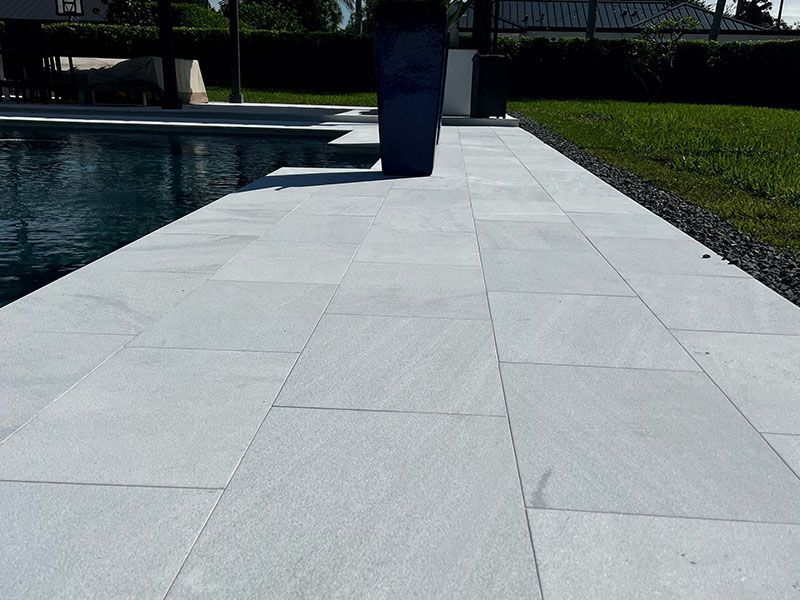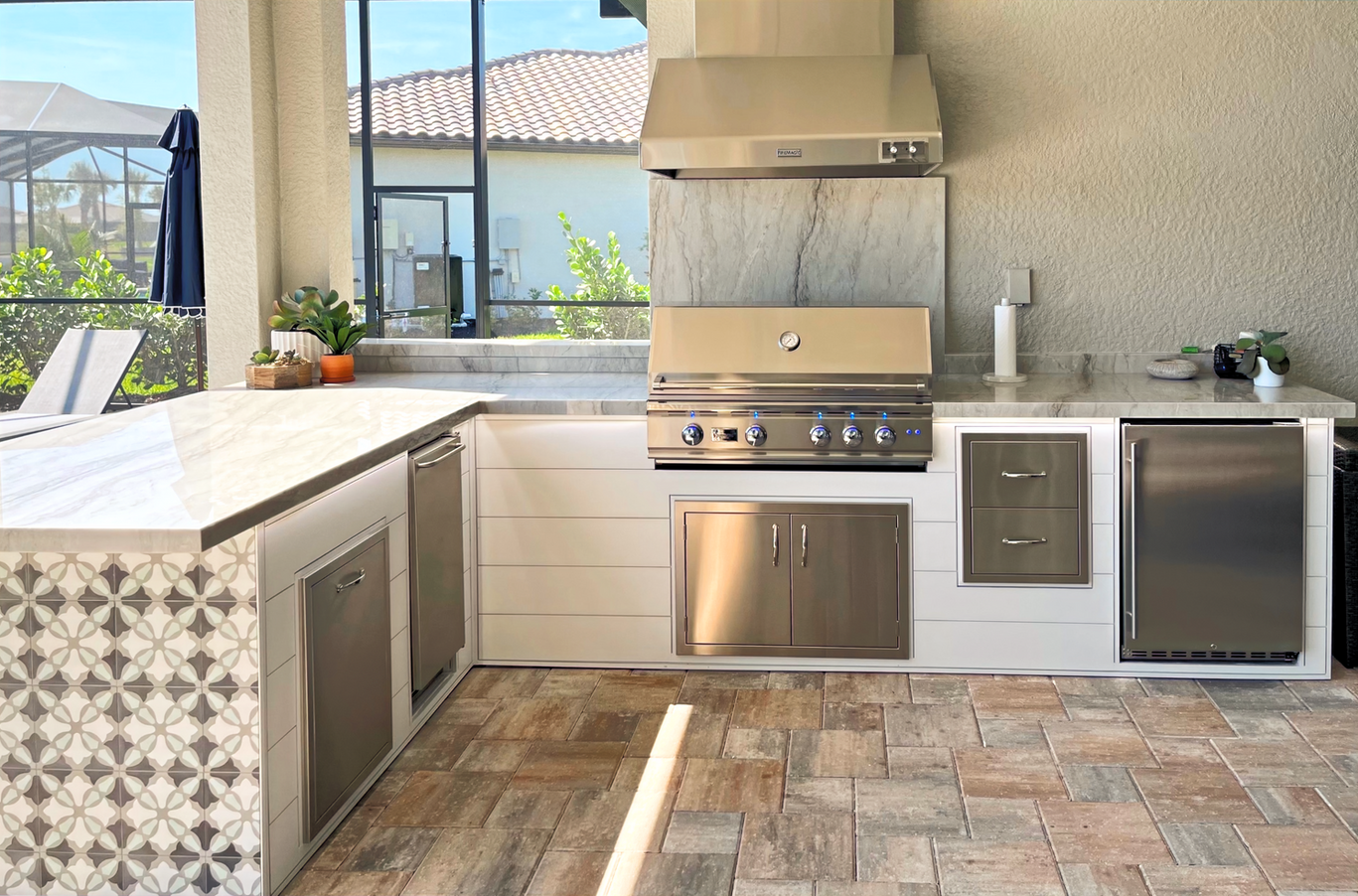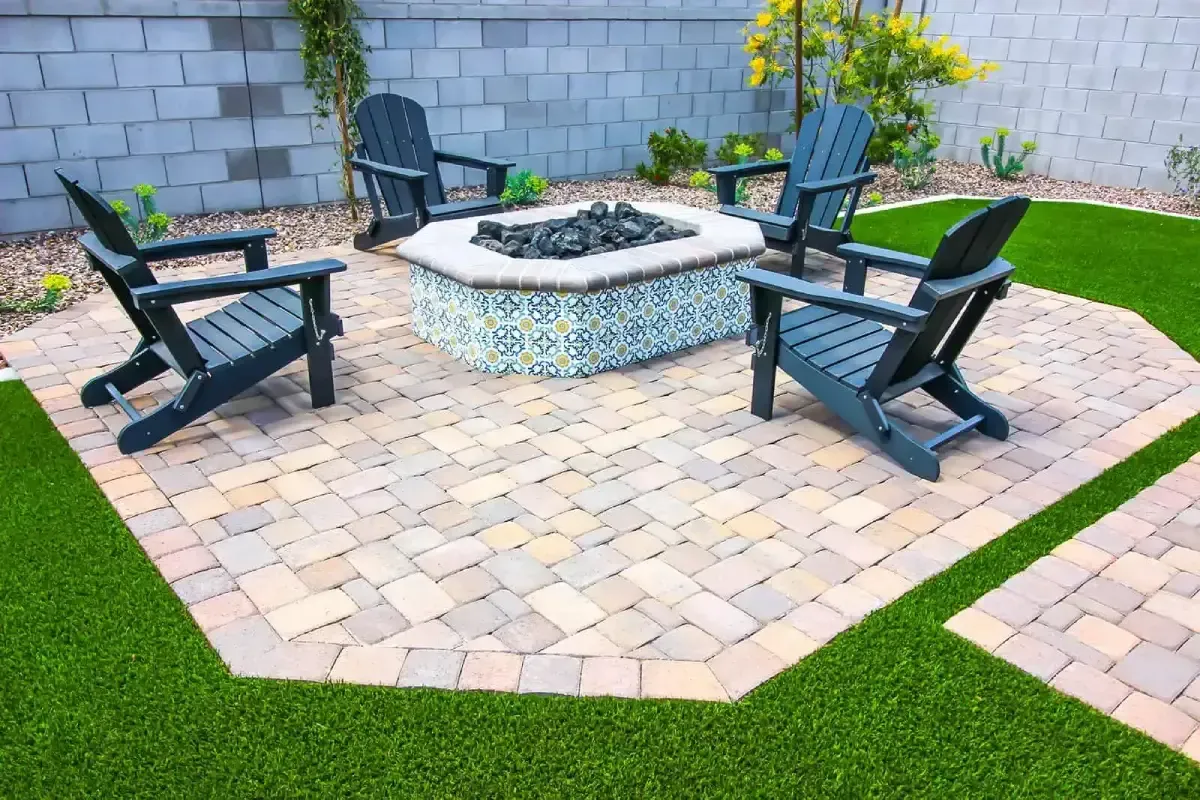How to Protect Your Concrete Surfaces from Florida's Climate
Start your concreate or paver project today!
How to Protect Your Concrete Surfaces from Florida's Climate
Florida's Climate Challenge
Concrete is durable, but the relentless Florida climate—with its intense sun, high humidity, and heavy seasonal rains—can take a toll on driveways, walkways, and patios. Understanding these threats and taking protective measures is key to ensuring the longevity and appearance of your concrete work. Right Way Concrete not only builds durable surfaces but also advises homeowners on how to protect them.
The Threat of Sun and UV Rays
The intense UV radiation in Florida can be damaging to concrete over time. It can cause colored or stamped concrete to fade and can contribute to the breakdown of certain sealers. While you can't stop the sun, applying a high-quality sealer with UV-blocking properties can significantly slow down the fading process and protect the surface integrity of your concrete in Vero Beach or Melbourne.
Combating Humidity and Moisture
High humidity and frequent rain create a perfect environment for mold, mildew, and algae to grow on concrete surfaces, leaving unsightly green or black stains. Moisture can also seep into unsealed concrete, and if it gets into small cracks, it can lead to further deterioration. Keeping concrete clean and properly sealed is the best defense against these moisture-related issues common in Port St. Lucie and Sebastian.
Brevard, Indian River & St. Lucie's trusted concrete, paver and outdoor kitchen experts! Call now for fast, affordable new concrete, paver, and outdoor kitchen installation.
Call us at ☎ 772-758-8973

The Power of a Quality Sealer
Applying a high-quality concrete sealer is the single most effective protective measure you can take. A good sealer creates a protective barrier on the surface that repels water, resists stains from oil and other spills, inhibits mold and mildew growth, and protects against UV damage. Sealing should be done after new concrete has fully cured and then reapplied every few years as part of a regular maintenance routine.
Ensure Proper Drainage
Water is concrete's biggest enemy. Ensure that the area around your concrete surfaces is properly graded so that water flows away from the slab, not towards it or allowing it to pool on top. Keep gutters and downspouts clean and directed away from your driveway and walkways. Preventing standing water is a crucial step in protecting your concrete from moisture damage and staining. This is a key consideration for any concrete contractor during installation.
Start with a Quality Installation
The best way to ensure long-term durability is to start with high-quality concrete work. A professional installation from Right Way Concrete ensures the correct concrete mix, proper reinforcement, and expert finishing techniques are used. We build durable concrete surfaces for homeowners across Brevard County, Indian River County, and St. Lucie County. Contact us for a free estimate and build it right from the start.
Brevard, Indian River & St. Lucie's trusted concrete, paver and outdoor kitchen experts! Call now for fast, affordable new concrete, paver, and outdoor kitchen installation.
Call us at ☎ 772-758-8973
Frequently Asked Questions
How often should I seal my concrete driveway in Florida?
For optimal protection against our intense sun and heavy rain, it's best to reseal your concrete driveway every 2-3 years. This renews the protective barrier against moisture, UV rays, and stains.
What is the best way to remove green or black mildew from my concrete walkway?
A solution of water and bleach (about a cup of bleach per gallon of water) or a store-bought mildew cleaner is very effective. Apply the solution, let it sit for 10-15 minutes, scrub with a stiff brush, and then rinse thoroughly with plain water.
Does a sealer make concrete slippery?
Some high-gloss, film-forming sealers can reduce traction. For driveways and walkways, it's best to use a penetrating sealer, which soaks into the concrete without creating a slick film, or ensure a non-slip additive is mixed into a surface sealer. Your concrete contractor can recommend the best option.



